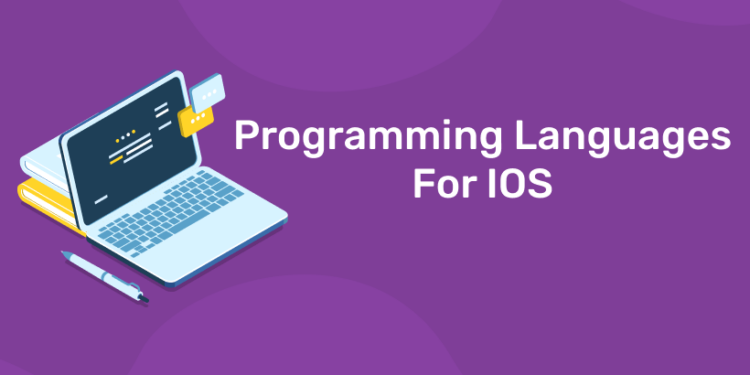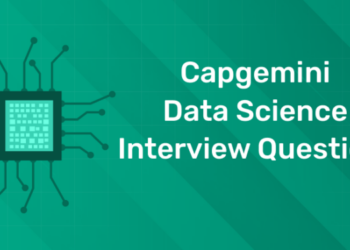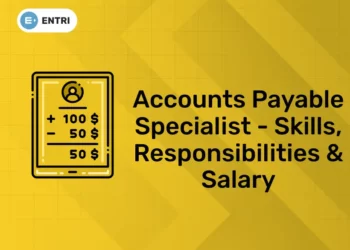Table of Contents
As an iOS developer, there are countless languages you need to know in order to build powerful apps that impress your users and improve their lives. From Objective-C and Swift to C++ and Java, knowing which language to use when can be confusing, especially if you’re just starting out or trying to decide which one to master next. There are lots of open-source libraries available for Android development as well, so there’s no need to worry about that platform. To help you with your decision, here’s a list of the programming languages you need to know for developing on the iOS platform along with their descriptions and associated resources you can use to learn more about them. After all, what good is an app without its own language?
Get the latest updates on the coding course in the Entri app
Swift
Apple’s only officially supported language, Swift, was released in 2014. So if your app targets iOS 8 or newer it’s probably a good idea to use Swift. If your app is universal (works on both iPhones and iPads) it might be a good idea to write some parts of it in Objective-C (see below), as well. That way users with older devices will still be able to run your app. And if you end up writing more of your app in Swift than necessary, there’s no harm in that: developers often share code between platforms. For example, Google has open-sourced its Swift framework for server-side apps so other developers can use it too! Just remember not to get caught up in the Swift vs. Objective-C hype war—the best choice for you really depends on what kind of app you want to build and how much time/money/effort are available at your disposal.
To know more about the android development in the Entri app
Java
The most important thing about Java is that it’s everywhere. Since Sun’s acquisition by Oracle, Java has fallen out of favor with some developers. Despite being a target of mockery at times, however, it still provides much-needed stability and performance; and it’s compatible with pretty much every device out there. A good developer can build a mobile app in Java without any difficulty. If your goal is just to get an app up on Google Play or Apple Store—with a minimum of hassle—it might be best to choose one of these well-known languages first before learning Objective-C or Swift. That way, when you’re ready to try something new, you’ll have enough experience under your belt already. It’s worth mentioning that even if you learn only one language (Java or Kotlin), it will make learning another easier because they share similar syntax structures. However, when developing a brand new app from scratch (rather than porting an existing code base) each of these languages will require its own IDE (integrated development environment) and specific resources while other platforms may not require all three necessary components.
C#/C++
While not technically iOS, C# and C++ are popular development languages used in building apps on Apple’s mobile operating system. If you’re working on an app that makes use of any device hardware—the camera, microphone, GPS, etc.—it’s likely written in C/C++. That said, there’s a good chance it’ll be made available for Android as well so you could potentially get away with just knowing one language (Java). If your app is more interface-oriented and isn’t hardware dependent though (think games) there’s a good chance it’ll require coding in Objective-C. This leads us to… The various ways to code Objective-C: On top of understanding basic programming syntax, if you’re going to code in Objective-C or another advanced language such as Swift, Xcode (Apple’s built-in development environment) has its own shorthand commands. This tutorial will help familiarize you with those terms, which can save valuable time when coding.
Others
Objective-C, Swift, JavaScript with jQuery Mobile, Python with Django, Ruby with Rails, and PHP. You will also benefit from some HTML/CSS. But don’t worry if you don’t have a solid grasp of these already – there are tutorials on nearly every language mentioned here! Just start with what’s easiest and as soon as that becomes comfortable pick up something new. If it feels overwhelming, remember that most developers take years before feeling truly confident in their skills. It’s OK to get started and then let yourself learn by doing. Learning how to code is not a goal — it is a process; an ever-evolving way of thinking about software creation and problem-solving. As long as you keep trying you will find ways to practice your skills in an app or game—you just need some patience, be observant, and always be learning new things! There’s no right or wrong way of learning—as long as it’s helping you become better at creating apps than yesterday then it’s working!
Summary
You might wonder what language you should be learning if your goal is developing apps that work on Apple devices. To answer that question, it’s important to consider why there are so many different options. It all starts with Objective-C, a high-level programming language used by Apple and its developers. Objective-C was created in 1984 by Brad Cox and Tom Love, who also co-created another popular language called Smalltalk while working at Xerox PARC (Palo Alto Research Center). After Apple acquired NeXT and Steve Jobs returned to Apple as interim CEO in 1997, Jobs wanted a way for Macs and other devices running Mac OS X could communicate with each other. With Objective-C, they were able to create Applescript, which allowed them to automate tasks across multiple applications.
Since then, Objective-C has evolved into an open-source C/Objective-C superset that allows software written in one of those languages to be executed within a program built using another one of them. At least 28 million lines of code have been developed using Objective-C over its life cycle; it’s safe to say developers have embraced its flexibility and ability to fit seamlessly into both device hardware and an app’s codebase. Today, however, those developers are looking for ways technology can help speed up their productivity when creating new apps. If you are interested to learn new coding skills, the Entri app will help you to acquire it very easily. Entri app is following a structural study plan so that the students can learn very easily. If you don’t have a coding background, it won’t be any problem. You can download the Entri app from the google play store and enroll in your favorite course.











